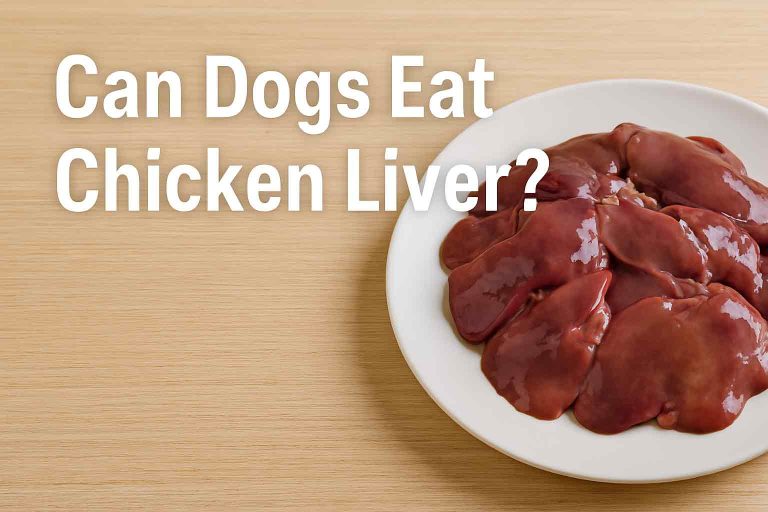Are Chicken Hearts Good for Dogs?
When it comes to feeding your dog a healthy and balanced diet, you might be wondering whether chicken hearts are a good addition to their meals. Many pet owners are exploring raw feeding and natural food sources to provide optimal nutrition for their furry companions. But are chicken hearts good for dogs? The short answer is yes—when fed in moderation, chicken hearts can be a nutritious and delicious treat for dogs.
In this article, we’ll dive into the nutritional benefits of chicken hearts, their potential risks, how to feed them safely, and answer some frequently asked questions about adding this organ meat to your dog’s diet.
Nutritional Benefits of Chicken Hearts for Dogs
Chicken hearts are rich in essential nutrients that can support a dog’s overall health. Unlike muscle meat, organ meats provide a concentrated source of vitamins, minerals, and amino acids that contribute to optimal well-being.
1. High in Protein
Protein is the foundation of a dog’s diet, helping with muscle growth, tissue repair, and energy production. Chicken hearts are packed with high-quality protein, making them an excellent addition to your dog’s diet.
2. Rich in Taurine for Heart Health
Taurine is an essential amino acid that plays a crucial role in heart function, eye health, and immune system support. Dogs require taurine to maintain strong cardiac health, and chicken hearts are an excellent natural source.
3. Packed with Vitamins and Minerals
Chicken hearts contain important vitamins and minerals such as:
- Iron – Supports red blood cell production and prevents anemia.
- Zinc – Boosts immune function and skin health.
- Phosphorus – Aids in bone strength and metabolism.
- B Vitamins (B2, B6, B12, Niacin, and Folate) – Help with energy production, nervous system function, and overall metabolism.
4. Supports Healthy Joints
Chicken hearts contain collagen and glucosamine, which are known to support joint health and reduce the risk of arthritis in dogs, especially in older breeds.
5. A Natural and Tasty Treat
Many dogs love the rich flavor and chewy texture of chicken hearts. Since they are highly palatable, they make for a great training treat or meal topper.
Are There Any Risks to Feeding Chicken Hearts to Dogs?
While chicken hearts offer numerous benefits, there are some potential risks to keep in mind:
1. High in Fat Content
Chicken hearts have a higher fat content compared to lean muscle meats. While healthy fats are beneficial for dogs, too much fat can lead to weight gain and digestive upset. If your dog is prone to obesity or pancreatitis, it’s best to feed chicken hearts in moderation.
2. Must Be Fed in Moderation
Although organ meats are highly nutritious, they should not make up more than 10% of your dog’s total diet. Feeding too many chicken hearts can cause an imbalance in nutrients, leading to vitamin A toxicity or gastrointestinal issues.
3. Risk of Bacteria in Raw Chicken Hearts
Raw chicken hearts may contain harmful bacteria like Salmonella. To reduce the risk of infection:
- Purchase from reputable sources that sell high-quality meats.
- Freeze the chicken hearts for at least two weeks before feeding to kill potential parasites.
- Practice proper food handling and always wash hands after touching raw meat.
How to Safely Feed Chicken Hearts to Your Dog
1. Raw vs. Cooked Chicken Hearts
- Raw Chicken Hearts: Many pet owners choose to feed raw chicken hearts as part of a raw diet (BARF or prey model). Raw feeding provides maximum nutrient retention, but it’s crucial to source high-quality meats and follow proper food safety measures.
- Cooked Chicken Hearts: If you prefer, you can lightly cook the chicken hearts by boiling or sautéing them without adding salt, oil, or seasoning. Cooking reduces the risk of bacterial contamination while still preserving most of the nutrients.
2. Serving Sizes Based on Dog Size
The amount of chicken hearts to feed depends on your dog’s size:
- Small dogs (under 20 lbs) – 1-2 hearts per day
- Medium dogs (20-50 lbs) – 3-5 hearts per day
- Large dogs (50+ lbs) – 6-8 hearts per day
If feeding chicken hearts as part of a balanced raw diet, ensure they only make up 5-10% of the total meal.
3. Mixing with Other Foods
Chicken hearts can be served alone or combined with:
- Dry kibble as a meal topper
- Fresh vegetables like carrots or green beans
- Other protein sources such as chicken breast or beef
Frequently Asked Questions (FAQ)
1. Can Puppies Eat Chicken Hearts?
Yes, puppies can eat chicken hearts, but they should be introduced gradually and in small amounts. Since puppies have sensitive digestive systems, start with tiny portions and monitor for any reactions.
2. Can Dogs Eat Chicken Hearts Every Day?
Dogs can eat chicken hearts daily in small portions, as long as it fits within their overall balanced diet. However, feeding too much organ meat can lead to nutrient imbalances.
3. Are Freeze-Dried Chicken Hearts Good for Dogs?
Yes! Freeze-dried chicken hearts are a safe and convenient alternative to raw chicken hearts. They retain most of the nutrients while eliminating bacteria through the freeze-drying process.
4. Can Dogs Eat Chicken Hearts and Gizzards?
Yes, both chicken hearts and gizzards are safe and beneficial for dogs. Gizzards provide additional protein, iron, and digestive enzymes.
5. Are Chicken Hearts Safe for Dogs with Allergies?
Dogs with poultry allergies should avoid chicken hearts. If your dog is prone to food allergies, consult your veterinarian before introducing new proteins.

Final Verdict: Are Chicken Hearts Good for Dogs?
Yes, chicken hearts are good for dogs when fed in moderation. They are an excellent source of protein, taurine, vitamins, and minerals that support heart health, muscle growth, and overall well-being. However, due to their high fat content, they should not make up more than 10% of your dog’s diet.
If you’re looking for a natural and nutritious treat, chicken hearts are a fantastic choice. Just be sure to feed responsibly, follow proper food safety guidelines, and balance your dog’s overall diet.
Would you like to try adding chicken hearts to your dog’s meals? Let us know your thoughts in the comments below!







